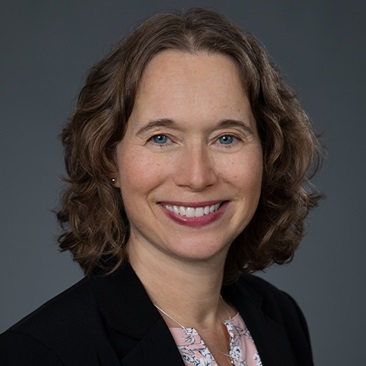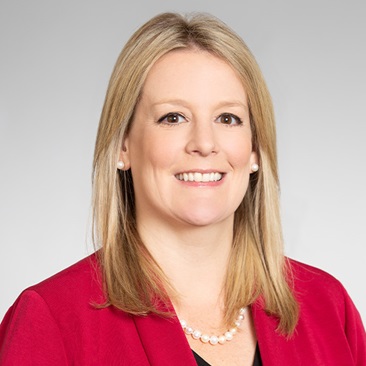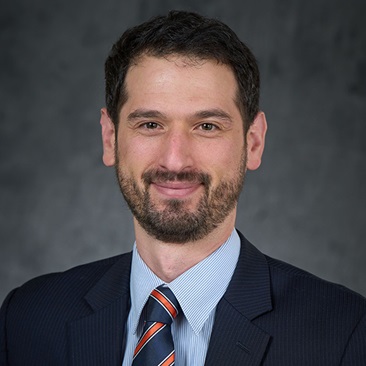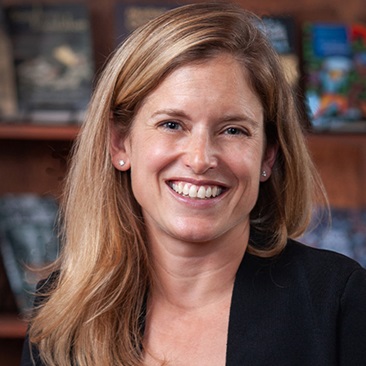Tracking COVID’s Toll
December 21, 2021
Related:
Claire Pendergrast
Pandemic research by Maxwell faculty and students is shaping policy and perception on everything from aging to opioid addiction.
Uncertainties about daily meals are a fact of life for Gerald, a divorced, retired Black man in his late 60s.
With $19,000 in annual household income and the minimum $16 a month in Supplemental Nutrition Assistance Program (SNAP) benefits, Gerald and his stepson sometimes run out of food, or must choose between buying groceries or other necessities.
Once a month, the senior center gives him a food box, but he is unable to carry it up the steps to their second-floor apartment, and it often contains processed food that is not good for his health; he is on the kidney transplant list.
During the COVID-19 pandemic, he has gone more often to food pantries—at least when he can get a ride—but supplies have diminished. “At the senior center, they used to have an abundance of food,” Gerald says. “But being so many people was in the pandemic, we would get the food from the food bank and it was hurting. Oh, my God, it was hurting. During COVID they did not have enough food at the food bank.”
Gerald’s story is one of 60 gathered by Maxwell sociologist Madonna Harrington Meyer and sociology graduate students for a book she is writing with Colleen Heflin, professor of public administration and international affairs, about food insecurity among lower income seniors.
Harrington Meyer and Heflin are researchers in the Center for Policy Research, the Lerner Center for Public Health Promotion and the Aging Studies Institute (ASI).
“By conducting in-depth interviews, we are able to connect individual, everyday experiences with nationally representative data sets,” says Harrington Meyer, who is a University Professor and a Meredith Professor of Teaching Excellence. “What we see is that the challenges millions face securing enough food for their families are not so much caused by, but exacerbated by, the pandemic.”
While Harrington Meyer investigates policies from the individual perspective, Heflin examines how policies work using big data, studying, for instance, access to SNAP and WIC (a nutrition program for women, infants and children) during the pandemic.
“With the pandemic, I really feel like I’m being called for service in a new way,” says Heflin. “With the high level of food hardship we’re seeing, SNAP and WIC have become more important than ever, and I’m pleased to be able to document and improve the coverage of how these programs are being implemented throughout the country.”
Harrington Meyer and Heflin’s research, funded by the Russell Sage Foundation, is one of many current projects by Maxwell faculty that track the toll of COVID. Scholars across the School are analyzing data, conducting surveys, and examining policy initiatives, often in collaboration with colleagues in other disciplines, to better understand the true impact of the pandemic—and to inform more effective policy.
Uneven Impacts
One important way that Maxwell faculty are contributing to our understanding of the pandemic is by assessing how it has affected specific segments of the population. In the early days of COVID-19’s spread in the U.S., reports suggested that rates of infection, hospitalization and mortality were particularly high in Black and Latino communities.
“We’re all looking at a different piece of the puzzle. … We’re trying to change how things work on the ground. Our campus has a real strength in this area, and I think it makes us well-placed to have an impact in policy and implementation during this critical time.”
Colleen Heflin
Professor of Public Administration and International Affairs
At the time, says Marc Garcia, a specialist on health disparities in the U.S. and a new member of Maxwell’s sociology faculty, “The assumptions made about these communities of color were that their health was a result of individual characteristics. “We now know that structural factors have led to these negative health outcomes among older adults, in particular, including inequalities of wealth, racial segregation, the lack of green spaces and health care access,” adds Garcia, also a researcher in the Aging Studies Institute.
One of Garcia’s current projects compares data on COVID deaths in 2020 and 2021. He has found that Blacks and Latinos are still dying from COVID at much higher rates than whites, but some states—New York and Illinois, for instance—have been much more successful at reducing that disparity than others, notably California.
Since COVID policies vary substantially by state, Garcia says his research aims “to examine these differences so that we can better target public health efforts toward communities.”
Another group disproportionately impacted by the pandemic is people with intellectual and developmental disability (IDD), especially those living in group homes.
The research of sociologist Scott Landes, who worked in human services before beginning an academic career, has helped spotlight the high rates of COVID transmission and fatalities among people with IDD, who often have underlying health conditions that increase their risk. His work has been cited in media outlets like the New York Times and PBS NewsHour, and by Congressional legislators as part of a push to improve COVID data reporting on this often-overlooked population, and to prioritize them for vaccination.
Landes’ work in this area continues. In one new project, he’s analyzing data from a New York City provider that serves 25,000 adults and children with IDD, aiming to get a clearer picture of COVID’s impact on those living with their families or in their own homes.
“The overarching goal in my research—and it harkens back to my time providing direct services—is that the work I do actually makes a difference in the lives of people with intellectual and developmental disability,” says Landes, an associate professor and researcher with the ASI. “They are often marginalized within society in general, and within the medical community in particular.”
Measuring Health
A wave of recently announced projects by Maxwell faculty, all supported by the National Institutes of Health (NIH), will continue to shed light on the ongoing repercussions of the pandemic.
One five-year study, funded by a $3.5 million NIH grant, will examine how COVID-19 has affected the health and education of children in the New York City public school system. Leading the research team are Amy Ellen Schwartz, professor and chair of economics and professor of public administration and international affairs (PAIA) and Daniel Patrick Moynihan Professor of Public Affairs, Brian Elbel of New York University, with co-investigators including Schwartz’s PAIA colleague, Michah W. Rothbart, and members of New York’s Department of Health and Mental Hygiene.
The team will explore a range of factors in the five-year study, including the effects of vaccine availability and uptake; racial, ethnic and income disparities; and the role of school and neighborhood resources in shaping outcomes.
Another NIH-funded faculty project will investigate the challenges for adult children caring for aging parents during the pandemic. Emily Wiemers, associate professor of public administration and international affairs, is leading the two-year project in collaboration with researchers at Bowling Green State University, UCLA and Duke.
“We’re studying how intergenerational help changed during COVID, because of course face-to-face interactions became riskier, and also the substitutes for that help—like formal care and Meals on Wheels—stopped, at least for a time,” says Wiemers, who is also a researcher at the Aging Studies Institute and Center for Policy Research. “So, we’re exploring how family members made up the gap, or whether there were needs for older adults that didn’t get filled.”
Beyond its impact on physical health, the pandemic has had profound psychological effects. Rates of drug overdose and suicide rose—although only in certain places and among certain groups, according to Shannon Monnat, associate professor of sociology, Lerner Chair for Public Health Promotion and director of the Lerner Center for Public Health Promotion.
At the same time, states took widely varying approaches to controlling the spread of COVID (through measures such as mask mandates, business closures and stay-at-home orders) and lessening the effects of these restrictions (through extended unemployment benefits and eviction moratoria, for instance).
“These policies varied all across the U.S., both in terms of whether the state implemented them and how long they were in effect, and in some cases the level of generosity,” says Monnat. “So, it creates a natural experiment to understand whether state policies had any effect on psychological health, drug overdose and suicide.”
That connection between policy and psychological health is the focus of a five-year study led by Monnat and funded by a $1.95 million grant from the NIH. The research uses data collected through a national survey on well-being conducted through the Lerner Center.
Several Maxwell scholars are co-investigators, including Wiemers; Jennifer Karas Montez, University Professor and director of the Center for Aging and Policy Studies; and Douglas Wolf, Gerald B. Cramer Professor of Aging Studies and professor of public administration and international affairs.
“Understanding how those variations affect different outcomes during the pandemic is really important,” says Monnat, “and ideally it will help to inform policies during the next pandemic.”
Thinking on the Ground
Conversations with faculty about COVID-related research quickly reveal connections to work by Maxwell colleagues across the social sciences and public affairs.
Research hubs such as the Lerner Center, Aging Studies Institute, Center for Policy Research and Campbell Public Affairs Institute facilitate collaborations across disciplines, too, and help share the fruits of research with policymakers and the public.
In addition to the collaborative research underway, an upcoming conference will highlight Maxwell faculty work on the pandemic. As part of her Carnegie grant for the book Pandemic Politics, Shana Kushner Gadarian, professor and chair of political science, is planning a conference on COVID research in spring 2023, facilitated by the Campbell Institute.
“Part of the plan is to bring people in from the outside,” she says, “but also to highlight the many colleagues here at Maxwell who have been doing work on COVID-19.” Colleen Heflin noted that the confluence of Maxwell research on the pandemic makes her own work much more rewarding. “We’re all looking at a different piece of the puzzle,” she says.
“At Maxwell we do high, rigorous research, but we like to do it with application. We’re trying to change how things work on the ground. Our campus has a real strength in this area, and I think it makes us well-placed to have an impact in policy and implementation during this critical time.”
By Jeffrey Pepper Rodgers
Related Stories:
Partisanship and the Pandemic
In March 2020, Shana Kushner Gadarian, professor and chair of political science, joined a team of scholars to survey 3,000 Americans on their attitudes and behaviors relating to the emerging issue of coronavirus.
The study revealed stark differences in respondents, but not based on any typical factors. “It wasn’t about people’s risk perception or how many COVID-19 cases were in their geographic area,” says Gadarian. “It wasn’t about age or occupation. The overriding characteristic that differentiated people was their partisan identities.”
The researchers went on to interview the same group five more times over the course of a year, and they found that the partisan gap changed very little. These findings, which helped Gadarian earn a 2021 Carnegie Fellowship, will be published next year in the book Pandemic Politics: How COVID-19 Revealed the Depths of Partisan Polarization (Princeton University Press), co-written with Sara Wallace Goodman and Thomas Pepinski.
“Health doesn’t happen separately from politics,” Gadarian says. “Public health knows a great deal about how to message on issues of health and medical best practices. But we also need to think about the other signals that people are getting, particularly the politics, and how to work with or around them.”
Supporting the Elderly
 As a Ph.D. student in sociology and graduate fellow with the Lerner Center for Public Health Promotion, Claire Pendergrast does research
on community-based agencies that support older adults living at home, providing services that became particularly critical during the pandemic.
As a Ph.D. student in sociology and graduate fellow with the Lerner Center for Public Health Promotion, Claire Pendergrast does research
on community-based agencies that support older adults living at home, providing services that became particularly critical during the pandemic.
Last spring, she published a paper and a research brief on New York aging networks’ responses to COVID and sent them to the Association on Aging in New York—which in turn shared her findings with state senator Rachel May, chair of the Committee on Aging.
In July, Pendergrast testified at a senate hearing about the importance of “building local infrastructure to equip older adults to age in place and avoid more restrictive, costly and often unwanted institutional care.”
For Pendergrast, who now is interning in May’s office, the hearing was a gratifying chance to bridge research and policy. “The reason I’m studying these organizations,” she says, “is to understand if they’re effective and how we can do better to help older adults be healthy and independent.”
Published in the Winter 2022 issue of the Maxwell Perspective
Related News
Research

Dec 19, 2024
Commentary

Dec 18, 2024
Research

Dec 18, 2024
Research
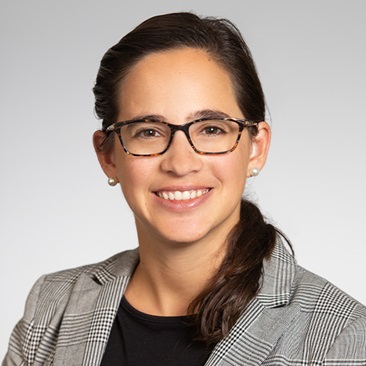
Dec 16, 2024

